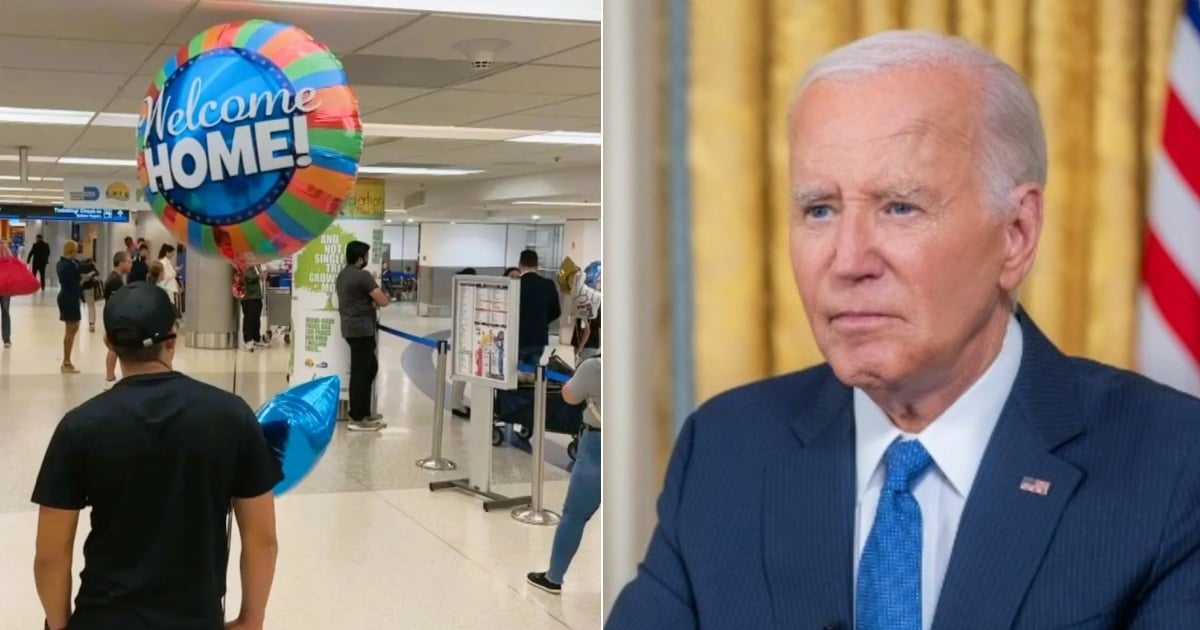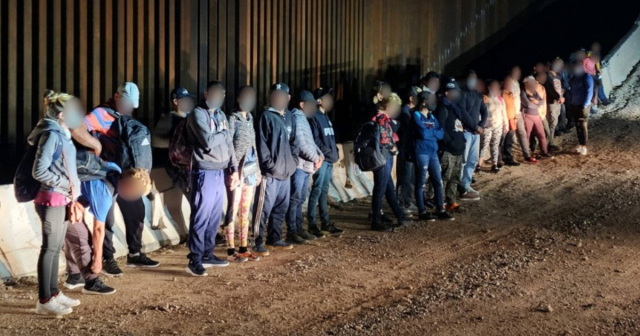
The government of Joe Biden announced this Friday that it will not extend the status of humanitarian parole once its deadline expires: at the end of the month for Venezuelans and in January 2025 for Cubans, Nicaraguans, and Haitians.
The decision affects half a million people, who must seek legal alternatives to remain in the country or face possible deportations in the coming months.
"Your parole will automatically end at the end of your parole period (up to two years from the day you received parole in the United States). If you have not applied for legal status or an authorized stay period, you will need to leave the United States before your parole period expires, or you may be subject to removal proceedings," warns an update on the DHS website.
"If you have not been granted legal status or an authorized stay period, you may start to accumulate illegal presence in the United States," adds the post.
Now all of them could face deportation, as their permits expire at the end of the probation period.
Although new requests for parole will continue to be accepted, these will only provide protection for a maximum of two years with no possibility of renewal.
Although parole does not provide a path to permanent residency or citizenship, pro-immigrant organizations hoped that Biden would extend the program, especially given his precedent with the re-paroles granted to Ukrainians and Afghans.
Additionally, since the measure was implemented, irregular crossings from Haiti, Nicaragua, Venezuela, and Cuba have decreased by 99%.
Although the DHS announcement comes as a cold bucket of water for many beneficiaries, Cubans have the significant advantage of being able to apply for permanent residency (green card) thanks to the Cuban Adjustment Act of 1966, which allows them to apply for residency after one year in the country.
In the case of Venezuelans and Haitians, they could apply for Temporary Protected Status (TPS) if they arrived before June 4, 2024, and July 31, 2023, respectively.
However, for the 93,000 Nicaraguans, the situation is more complicated, as they are not eligible for TPS and will have to seek asylum, something that has become more difficult under the new restrictions of the Biden Administration.
If they do not find other legal options, these immigrants could face deportation processes, although it is not clear how they would be carried out, since countries like Cuba, Nicaragua, and Venezuela do not accept U.S. deportations, while Haiti does allow it.
Currently, 344,335 Venezuelans and 200,005 Haitians reside in the country under TPS, although this will also expire: in September 2025 for Venezuelans and in February 2026 for Haitians.
The humanitarian parole program was launched in October 2022 to provide a legal pathway for Venezuelan immigrants arriving irregularly in the United States.
As of today, nearly 117,000 Venezuelans have received protection under this program, obtaining permission to live and work in the country for two years.
In January 2023, the Biden administration expanded the initiative to include citizens from Haiti, Nicaragua, and Cuba, who were also crossing the border in alarming numbers.
According to data from the Department of Homeland Security (DHS), as of the end of August 2023, about 530,000 immigrants from these four countries were residing in the United States under parole.
Of that total, 210,000 are Haitians, 117,000 are Venezuelans, 110,000 are Cubans, and 93,000 are Nicaraguans.
The program has been criticized, especially by Republicans. Donald Trump and his allies called it illegal, arguing that it is an abuse of presidential authority.
Before the Biden Administration's decision, the Republican candidate had already promised to dismantle the program if re-elected.
"Prepare to leave," he said in an interview with Fox News a few days ago.
What do you think?
COMMENTFiled under:






